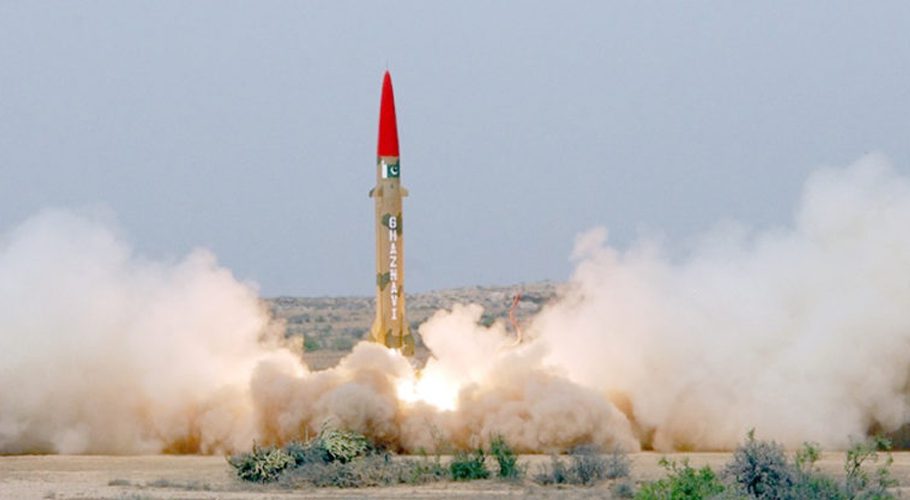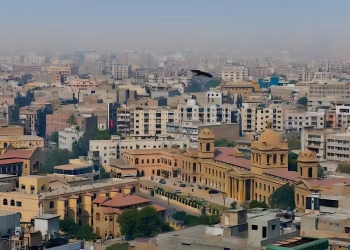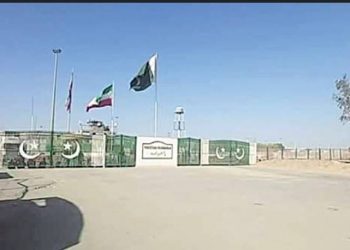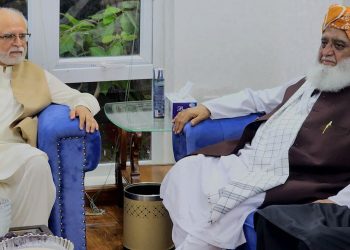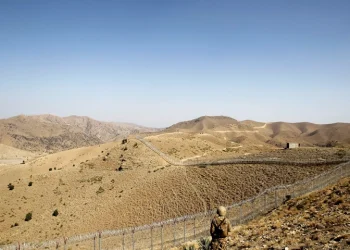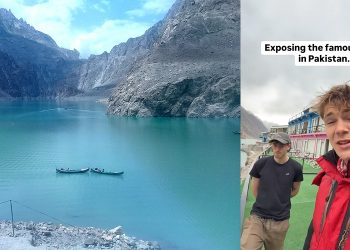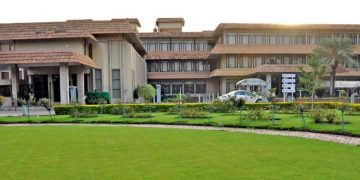May 28 the nation celebrated Youm-i-Takbeer across the province here on Friday to mark the day when Pakistan detonated nuclear bombs in the Chaghi area of Balochistan to test its nuclear prowess and in response to India’s tests.
The day was a Red Letter Day for the country, because on 28 May 1998, at 03:16 pm it traversed the nuclear brink becoming the world’s 7th nuclear state and the first nuclear weapons power in the Islamic World.
Background
India has dreamed of becoming a champion in South Asia since its inception. The country, the world’s third-largest ground force, the fourth-largest air force and the fifth-largest navy, began a nuclear arms race in the region in 1974 with a nuclear test. In May 1974, India conducted its first nuclear test, while claiming it to be a Peaceful Nuclear Experiment—which, as proved later, was not actually the case. Later, Pakistan was also forced to join the race to defend itself.
Pakistan’s concerns
Pakistan has urged Western powers and the United Nations to assist establish a nuclear-free zone in South Asia. It has made a number of suggestions for achieving a nuclear non-proliferation regime in South Asia. Regrettably, all of its efforts towards this end were opposed by India and treated indifferently.
Therefore, after the Indian nuclear tests, then Prime Minister Zulfiqar Ali Bhutto decided to make Pakistan a nuclear power not only in South Asia but also in the Islamic world.
Efforts began for nuclear weapons
In January 1972, Pakistan began the development of nuclear weapons under PM Zulfikar Ali Bhutto, who delegated the program to the Chairman of the Pakistan Atomic Energy Commission (PAEC) Munir Ahmad Khan with a pledge to having the bomb ready by the end of 1976.
Since PAEC, consisting of over 22 projects and laboratories and under nuclear engineer Munir Khan, was falling behind schedule and having considerable complexity producing fissile material, Abdul Qadeer Khan was brought from Europe by Bhutto at the end of 1974.
Bhutto was the key architect of this programme, and it was here that Bhutto arranged the nuclear weapons programme and rallied Pakistan’s academic scientists to build an atomic bomb in 3-years for national survival.
Later, scientist Abdus Salam led the establishment of the Theoretical Physics Group (TPG) as he called scientists working at ICTP to report to Munir Ahmad Khan in December 1972.
This marked the establishment of Pakistan’s chase of nuclear deterrence capability. In 1974, Following India’s astonish nuclear test, codenamed Smiling Buddha, the first confirmed nuclear test by a nation exterior the permanent five members of the US Security Council, the aim to develop nuclear weapons received a substantial impetus.
Finally, a few weeks after India’s second nuclear test (Operation Shakti) on 28 May 1998, Pakistan detonated five nuclear devices in the Ras Koh Hills in Balochistan’s Chagai district.
Indian destroyed the global arms control
In fact, Indian nuclear explosions have annihilated the global arms control and non-proliferation regime. The Comprehensive Test Ban Treaty (CTBT), the Fissile Material Cut-off Treaty and The nuclear Non-Proliferation Treaty (NPT), (being negotiated)—all world arms control and non-proliferation treaties have been blown into pieces due to Indian’s dream of becoming a champion in South Asia.
All global attempts towards achieving a nuclear-free world have suffered a severe blow. In this perspective India and Pakistan may be repeating the ill-fated example set by the Russia and US during the cold war period: that is, building vicious nuclear forces far out of proportion to their position in deterrence.
Should a war between Pakistan and India ever happen, as circumstances indicated, the countries alone could suffer a million fatalities, a regional catastrophe. Compounding the destruction brought upon the two countries, decisions to use nuclear weapons could harshly affect every other nation in the world so the United Nations and the international community must implement pacifism as a priority strategy for all countries and should press India to produce further nuclear weapons in order to reduce the threat of nuclear war in the world.
Pakistan has been vigorously contributing to international efforts for strengthening universal norms on arms control, non-proliferation and disarmament and follows the latest international standards on export controls, nuclear safety and security at the national level.







